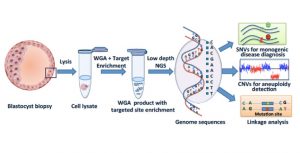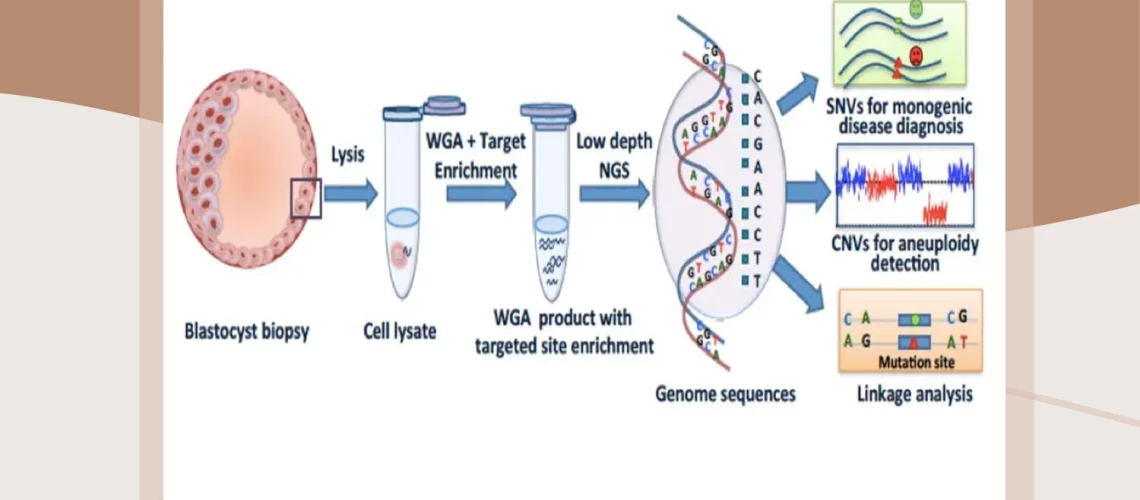PGS – Reducing The Risk Of Miscarriage
As you know infertility has different reasonable types. One of them is of a genetic basis. Actually only a third parts of all embryos settle down in uterus and less percentage can give a birth of healthy child. Let’s figure out why it is like this.

What is PGS?
Preimplantation Genetic Screening, the proper term for testing for overall chromosomal normalcy in embryos.
Preimplantation genetic screening helps to find different genetic anomalies of the embryo before their transfer into the uterus. It increases the possibility of a patient to have a successful embryo implantation and effective IVF.
The doctor advices to use PGS to those patients that are in a risk group (women that can’t carry an embryo during early gestation, women older than 35 years, women that had unsuccessful attempts to become pregnant with the help of ART and surrogacy).
Why PGS?
PGS is mainly performed for screening of chromosomes. Through PGS, the normalcies of chromosomes are checked. Human beings have 46 chromosomes but extra or less number of chromosomes may lead serious problems like down syndrome. Chromosomal abnormalities are also responsible for about 70% of miscarriages in early pregnancy. Failure of implantation of IVF embryos also may caused due to Chromosomal abnormalities.
Percentage of chromosomal abnormalities increases due to increase in woman’s age. Chromosomes in eggs from older women have a significantly increased rate of abnormalities. Hence, before implantation of embryos to the uterus, PGS is an important step.
How PGS works?
For PGS procedure of three day embryos the doctor takes one blastomere in order to find a genetic disease. He goes to special laboratory and there he counts the quantity of the chromosomes. The results of the research are ready on the fifth day, right at the moment of embryo transfer. If it’s ok, the doctor finds 23 pairs of chromosomes: 22 regular and 1 pair of sex chromosomes.
The aim of the method is to find healthy and good embryos. It will increase the possibility of successful transfer, pregnancy and carrying a baby during pregnancy. It is believed that the risk of anomaly embryos increase with the age of the women and doesn’t depends on the way of conception.
What PGS gives us?
- Increasing of success of ART with first try at the young patients up to 84%
- Reducing of the risk of miscarriage at first trimester up to 6-9%
- Guaranteeing the birth of healthy child without any genetic pathology.
Pons Medical Researcher can help you with any question that you may want to ask. All our programs offer the possibility of performing the Pre-implantation Genetic Screening

